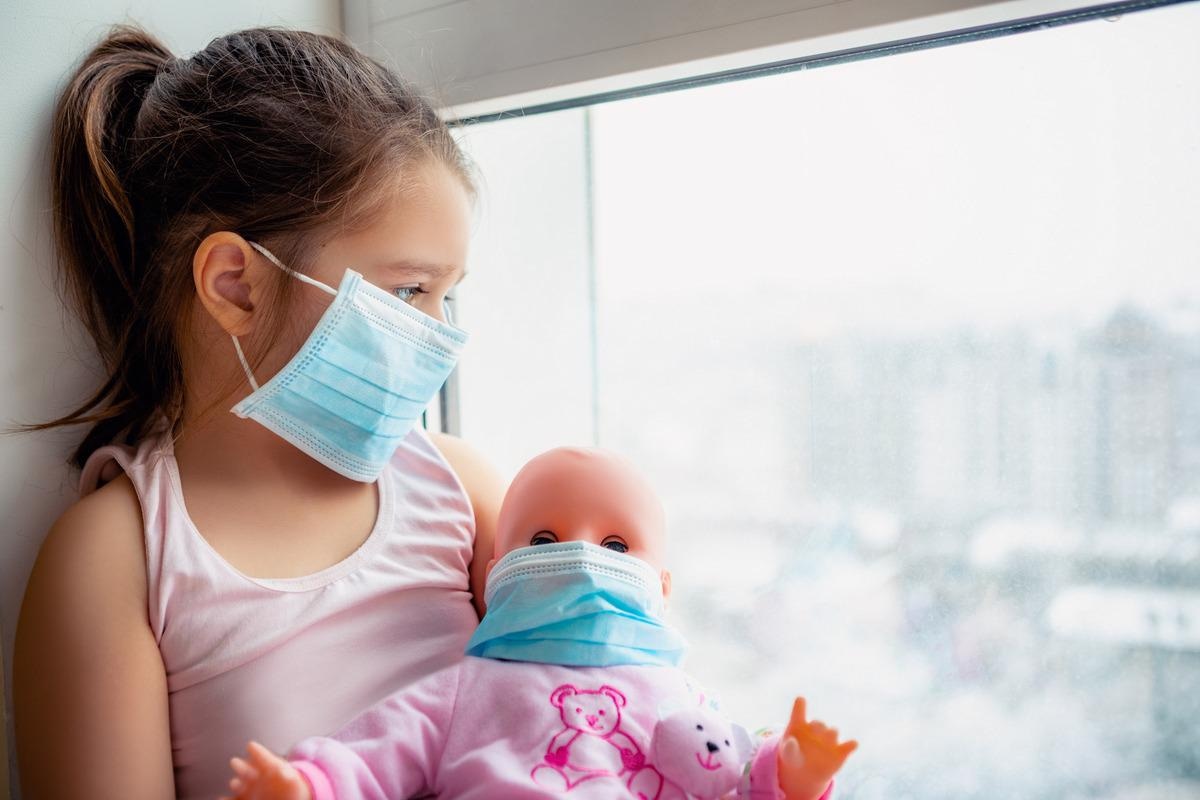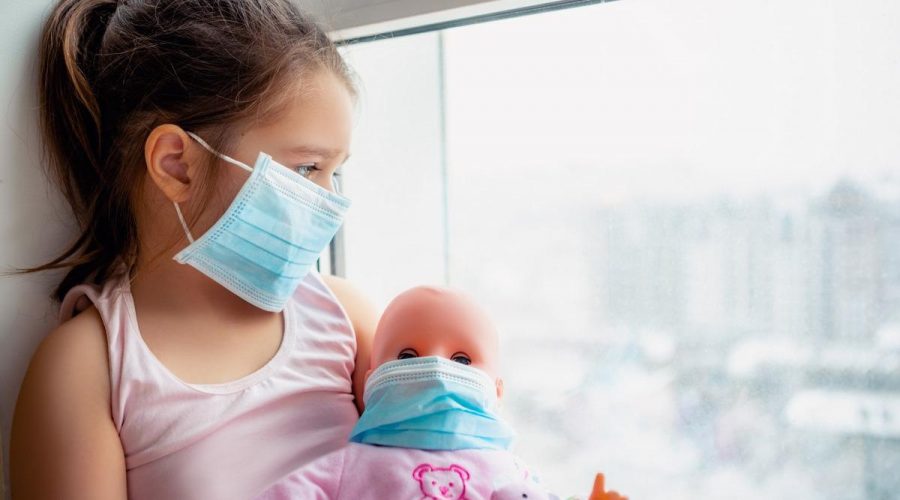SARS-CoV-2-related caregiver mortality and orphanhood among children
In a recent article posted to the medRxiv* preprint server, researchers illustrated coronavirus disease 2019 (COVID-19)-linked caregiver death and orphanhood in children.

Background
According to emerging worldwide modeling evidence on severe acute respiratory syndrome coronavirus 2 (SARS-CoV-2)-related excess fatalities, the pandemic death burden is more than double the number of COVID-19-associated deaths documented. The latest World Health Organization (WHO) estimations for COVID-19 excess mortality enable the creation of more accurate and up-to-date models of COVID-19-related caregiver loss and orphanhood in children.
Caregiver or parent death is permanent and their impacts on children could be enduring and devastating, including abuse, institutionalization, mental health problems, traumatic grief, poor educational outcomes, chronic/infectious diseases, and adolescent pregnancy.
Inconsistencies in SARS-CoV-2 testing and insufficient mortality reporting priorly impeded worldwide totals and national comparisons on COVID-19-linked caregiver loss and orphanhood across children.
About the study
In the present study, the investigators derived new COVID-19-related orphanhood estimates using SARS-CoV-2-linked excess death data. The researchers thoroughly assessed the long-lasting influence of SARS-CoV-2-connected caregiver loss and orphanhood among children. They integrated age-specific excess mortality and fertility estimates from January 2020 to May 2022 using methodologies developed in previous studies. This allowed the team to update their caregiver or parent loss estimates to current estimates derived from excess death for each reporting nation, utilizing The Economist, the Institute of Health Metrics and Evaluation (IHME), and the WHO data.
They substituted COVID-19-linked fatalities in earlier logistic models with the maximum excess deaths and SARS-CoV-2-associated mortalities for two timeframes, 1 January 2020 to 31 December 2021 and 1 January 2020 to 1 May 2022. Further, the researchers employed bootstrapping to determine the uncertainty in their estimations based on mortality and fertility data.
Results
The study results illustrated that through 1 May 2022, 10.4 million children lost caregivers or parents as a result of COVID-19-related excess deaths, and 7.5 million children suffered pandemic-related orphanhood, based on WHO excess mortality estimates. SARS-CoV-2-associated orphanhood and caregiver loss impacted more children in the WHO areas of South-East Asia and Africa than in the Americas, Eastern Mediterranean, European, and Western Pacific.
Similarly, estimates differ at the national level, with India, Indonesia, Egypt, Nigeria, and Pakistan being the most impacted through 1 May 2022. Of the WHO regions significantly affected, nations displaying the highest proportions of bereaved children in South-East Asia included Indonesia, India, Myanmar, Nepal, and Bangladesh; and in Africa consisted of the Democratic Republic of Congo, Nigeria, South Africa, Ethiopia, and Mozambique.
Discussions and conclusions
According to the study findings, an estimated 10.4 million children have lost their parents or caregivers due to the worldwide pandemic of COVID-19-related caregiver mortality and orphanhood. These new findings on the effects of the SARS-CoV-2 pandemic on children were congruent with Saving Lives Now, a main priority of the forthcoming Presidential Global COVID-19 Summit.
The authors noted that although a tremendous amount of money was invested in minimizing SARS-CoV-2-related deaths, nothing was done to look after the children left behind. On the other hand, examples of billions of dollars spent on children orphaned because of acquired immune deficiency syndrome (AIDS) depicted successful solutions that could be replicated.
Only Peru and the United States (US) have established evidence-informed national plans to combat COVID-19-associated orphanhood. Desperately required SARS-CoV-2 pandemic responses include equitable COVID-19 vaccination combining life-changing initiatives for grieving children. Considering the life-long implications and magnitude of orphanhood, incorporating prompt care for these children into every national pandemic response strategy would help lessen the long-term impacts.
The investigators noted that caregiver loss could lead to sexual exploitation, poverty, mental health hardship, and school dropout without supportive interventions in children. The present findings highlight the need for three crucial elements: 1) accelerate COVID-19 vaccinations, treatment, and containment, thereby preventing the mortality of caregivers; 2) educate families to offer caring and safe alternative care; and 3) safeguard orphaned children via parenting support, violence prevention, ensuring school access, and economic assistance.
Overall, the present research illustrated that an efficient, caring action to safeguard children from long-term and immediate harm caused by the SARS-CoV-2 pandemic was both a public health necessity and an investment in the future.
*Important notice
medRxiv publishes preliminary scientific reports that are not peer-reviewed and, therefore, should not be regarded as conclusive, guide clinical practice/health-related behavior, or treated as established information.
- Susan Hillis, Joel-Pascal Ntwali N'konzi, William Msemburi, Lucie Cluver, Andres Villaveces, Seth Flaxman, H Juliette T Unwin. (2022). 10.4 Million Children Affected by COVID-19-associated Orphanhood and Caregiver Death: An Imperative for Action. medRxiv. doi: https://doi.org/10.1101/2022.05.08.22274788 https://www.medrxiv.org/content/10.1101/2022.05.08.22274788v1
Posted in: Child Health News | Medical Science News | Medical Research News | Disease/Infection News
Tags: AIDS, Children, Chronic, Coronavirus, Coronavirus Disease COVID-19, covid-19, Fertility, Infectious Diseases, Mental Health, Mortality, Pandemic, Parenting, Poverty, Pregnancy, Public Health, Research, Respiratory, SARS, SARS-CoV-2, Severe Acute Respiratory, Severe Acute Respiratory Syndrome, Syndrome

Written by
Shanet Susan Alex
Shanet Susan Alex, a medical writer, based in Kerala, India, is a Doctor of Pharmacy graduate from Kerala University of Health Sciences. Her academic background is in clinical pharmacy and research, and she is passionate about medical writing. Shanet has published papers in the International Journal of Medical Science and Current Research (IJMSCR), the International Journal of Pharmacy (IJP), and the International Journal of Medical Science and Applied Research (IJMSAR). Apart from work, she enjoys listening to music and watching movies.
Source: Read Full Article
